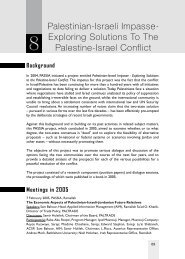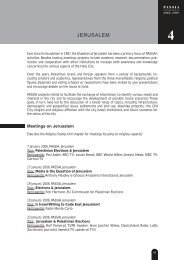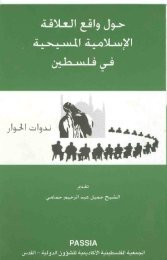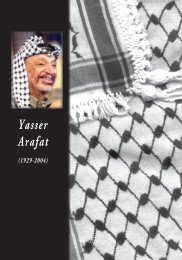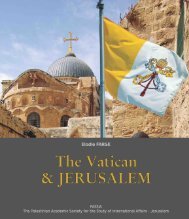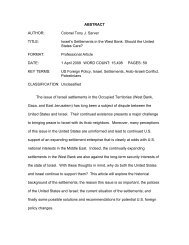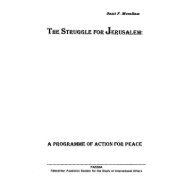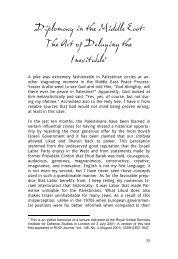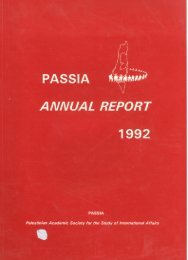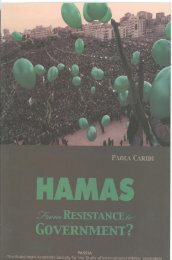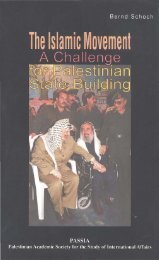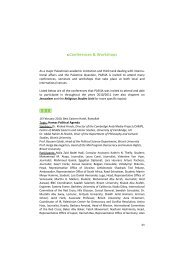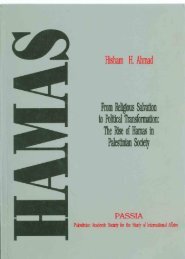FINLAND & PALESTINE Proceedings of a Joint Workshop
FINLAND & PALESTINE Proceedings of a Joint Workshop
FINLAND & PALESTINE Proceedings of a Joint Workshop
Create successful ePaper yourself
Turn your PDF publications into a flip-book with our unique Google optimized e-Paper software.
It may sound irrelevant to talk about such an abstract term as<br />
the EU's institutional identity when we have the unsettled disputes<br />
between the Palestinians and Israelis at hand. But, if we<br />
consider identity being the basis for all action, it (hopefully)<br />
makes more sense to start from such a theoretical notion.<br />
Now, let us put the said into the context <strong>of</strong> the EU's action in<br />
the Middle East.<br />
First, the aim is to strengthen the EU as an entity, and have its<br />
foreign policy recognized by other significant actors - including<br />
the Palestinians and Israelis. Secondly, the EU seeks to contribute<br />
to a just solution <strong>of</strong> the conflict. And, the third element is<br />
the safeguarding <strong>of</strong> the EU Member States' interests in the<br />
region (and, to a lesser extent, the interests <strong>of</strong> the Union as a<br />
whole).<br />
When it comes to economic or related activities, the EU has<br />
managed to create an image <strong>of</strong> a rather coherent and influential<br />
international actor, while, in foreign and security policy<br />
matters, it has suffered from the lack <strong>of</strong> legitimacy and capabilities<br />
to act. Even in its relations with potential or actual conflict<br />
regions, the link, usually, is primarily economic, in the form <strong>of</strong><br />
trade sanctions, development and emergency aid and, in postconflict<br />
situations, reconstruction aid. Although the economic<br />
domain has been emphasized in the EU's integration process,<br />
both in internal and external relations, the EU has not deliberately<br />
chosen to limit its role to that <strong>of</strong> a paymaster.<br />
3.1. Identity<br />
Involvement in conflict prevention, conflict resolution and<br />
peace-building has, traditionally, been one <strong>of</strong> the most difficult<br />
questions in international interaction, due to the complex and<br />
contradictory relations <strong>of</strong> actors and their interests, as well as,<br />
the question <strong>of</strong> sovereignty among conflicting parties. The<br />
72



